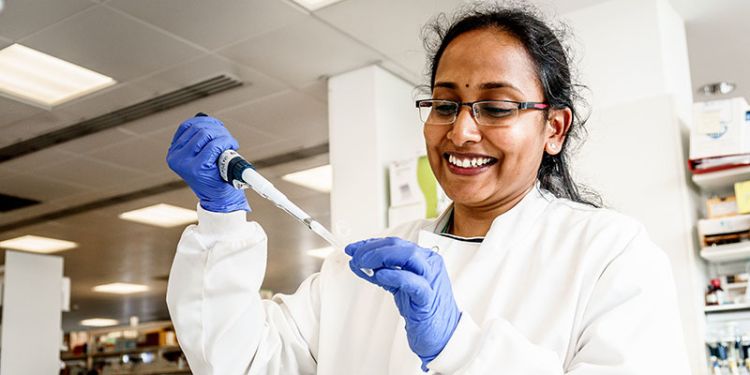British Heart Foundation 4 Year PhD Programme in Cardiovascular Disease and Diabetes
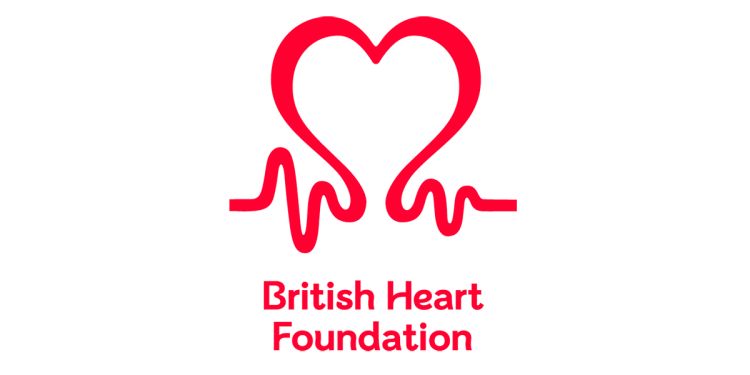
Why focus on Cardiovascular Disease and Diabetes?
Structure of our Programme
Year 1 also includes a carefully designed programme of lectures, generic laboratory training and clinical experiences. Within years 2 to 4, you may also plan a visit to an outstanding overseas or UK research group, or gain experience in a non-academic environment, to develop further skills and experience relevant to your research interests and help you plan a future career within or outside of academia. You will also receive support from our careers centre and learn from our alumni about their career journeys.
Highlights of the Programme
-
Support from a dedicated programme co-ordinator (Dawn Best)
-
A buddy scheme that links you with an established programme PhD fellow during your first year
-
A mentorship scheme where we help you to find an experienced mentor outside of your supervision team
-
Access to world class research facilities
-
Maximized time for the main PhD project
-
Overseas visits to other world-leading laboratories
-
Support for career development
-
Annual off-campus research symposia
-
Opportunities to publish your research and a review article
-
Extensive relevant taught and real-life training experiences
-
Wide multidisciplinary supervisor pool (including clinician-scientists)
-
Up to £3,000 financial support to attend relevant scientific meetings
-
Located in a state-of-the-art scientific building on one of the largest university-hospital complexes in the UK
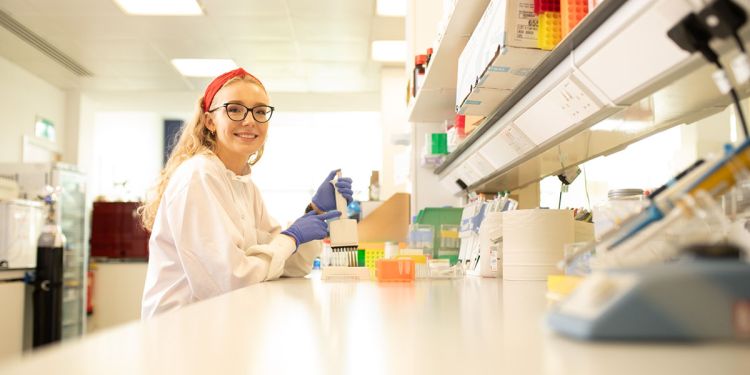
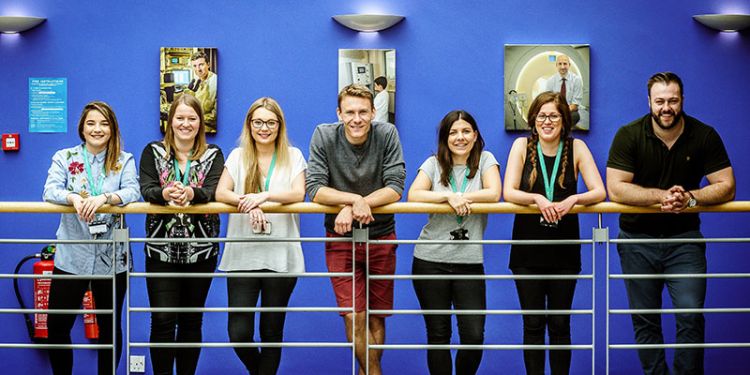
Applications for 2025 entry are currently suspended. Please refer back to this page in February 2025. Until then, you can access a full list of current research opportunities on the University of Leeds’ Research Opportunities webpage.
The PhD projects we host align with one of three themes, all of which focus on research challenges we have identified that can lead to improved understanding, prevention and treatment of cardiovascular disease in people with diabetes. We are keen to recruit talented researchers from all scientific disciplines and projects are offered across the range of discovery, translational, applied research, computational and data analytic research. Successful applicants will be matched with projects after interview, after having the opportunity to meet prospective supervisors and discuss available projects. Please indicate on the application form which of the following themes you are most interested in:
- Diabetic vascular disease: Diabetes injures blood vessels throughout the body. These are the interface between the bloodstream and the cells forming every organ; they actively influence organ function and even communication between organs. This theme focusses on understanding how diabetes alters blood vessel function and leads to disease.
- Diabetes, thrombosis and inflammation: Diabetes and other metabolic disorders are characterised by increased risk of blood clotting (thrombosis) linked to inflammation. This theme focusses on understanding the molecular and metabolic factors that drive inflammation and associated thrombosis within blood vessels.
- Diabetes, heart failure and multimorbidity: Multimorbidity is the co-occurrence of two or more chronic health conditions. Diabetes is a systemic disease which impacts across different organs. This theme focusses on understanding the relationship between diabetes, cardiovascular disease and other chronic diseases.
Entry Requirements
-
Applicants must be eligible under the UK Home Fee status criteria. Academic fees are included in the scholarship awarded to successful candidates.
-
Applicants will have, or expect to obtain, a degree equivalent to at least a UK upper second-class undergraduate degree in a relevant subject area including; medical sciences, biomedical sciences, structural biology, biochemistry, imaging, physics, chemistry, mathematics, statistics and computing
-
Applicants applying should not already have been awarded a doctoral degree
-
We welcome applications from all suitably qualified candidates. We particularly encourage applications from under-represented groups. All scholarships will be awarded on the basis of candidate potential.
Applicants whose first language is not English must meet the Faculty’s English Language requirements, where applicable.
Financial Information
This studentship will cover the cost of academic fees (at the UK Home Fee rate for postgraduate researchers) and a standard BHF PhD stipend (£19,919 - £23, 298 per year), based on 2023/24 rates. The studentship also includes a budget for research consumables and funding of up to £3,000 to attend relevant scientific meetings.
How to apply
All applicants are required to completed an online application form, in which you will need to upload the following supporting documents. As part of the online application, you will need to upload the following mandatory supporting documents:
-
Three supporting statements about your previous achievements, why you wish to study for a PhD, and your experience of using evidence to inform conclusions. These will be used by our shortlisting panel (without any other information you submit) to select candidates for interview. Detailed instructions and a template outlining the format of your supporting statements is provided here. You will need to copy, complete and submit this as part of your required application documents.
-
Full Academic CV.
-
Degree certificates and transcripts both for undergraduate and postgraduate studies as appropriate (or marks so far if still studying)
-
2 references from academic referees. Offers are subject to satisfactory references. Please ensure you have named your referees on your application form. We will contact all referees directly as part of the application process.
-
Evidence of English language ability, if applicable
-
An Equality, Diversity and Inclusion questionnaire. We encourage candidates to complete this form so that we can understand our progress in recruiting under-represented groups. It is important to note that all responses are anonymous and data would only ever be used in aggregate to avoid identification of individuals. The questionnaire includes a ‘prefer not to say’ option against each question if required. The information you provide on this questionnaire will not be used in the shortlisting process.
To help us identify that you are applying for this opportunity please ensure you provide the following information on your application form:
-
When asked for your programme of study please select Cardiovascular Disease and Diabetes (PHP-CADD-4FT)
-
In source of funding make it clear that you are applying for the British Heart Foundation (BHF) Scholarship
-
Give your chosen research theme as the project title
Enquiries regarding the application process should be directed to the Faculty of Medicine and Health Graduate School fmhpgradmissions@leeds.ac.uk
For further information about the programme, please email the BHF 4Y PhD Team directly on bhfphdprogramme@leeds.ac.uk
Selection process
Closing date for applications is midnight on 3 January 2024. Interviews are expected to be held on the 22 January 2024. Candidates will choose an in-person or remote interview. Travel expenses for interview attendance can be paid for by the programme.
Interviews will last 30 minutes. We do not require interviewees to give presentations. We will provide details of the interview process, including questions that we will ask, one week in advance of interviews.
In addition to the interview, there will be an opportunity to learn more about the Programme from:
-
A short talk by the Programme Directors: Associate Professor Richard Cubbon and Associate Professor Marlous Hall who will discuss and answer questions about our programme ethos, the structure of our training, and the research in our Institute.
-
A presentation by current Programme PhD fellows and the opportunity to discuss their experiences
Successful candidates will be contacted by the Programme Directors after interview to discuss their project selection, a process which will include the opportunity to meet prospective supervisors and learn about the projects they are offering.
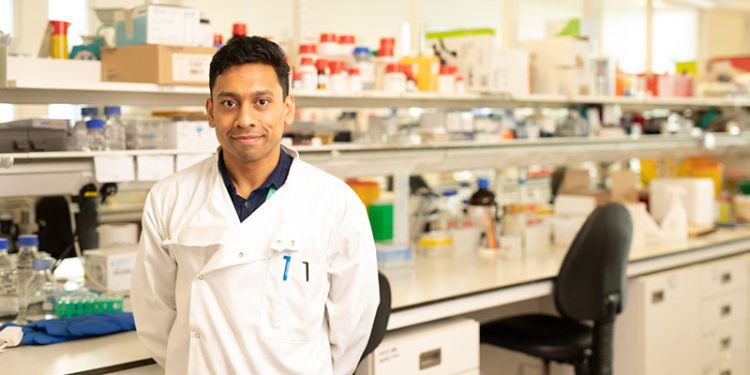
Where can I get support?
International Office - Provides welcome and orientation support and immigration advice and the opportunity to be part of a Global Community.
Doctoral College - Provides support and enhances opportunities available to you as a PhD student.
Feeling at Home in Leeds - The University offers face to face support and online tools to help students feel at home and make the most of University life.
Faculty of Medicine and Health Graduate School - As a researcher at Leeds, you will be part of a vibrant and welcoming research community both within the Faculty and the wider University.
Disability - Describes the support available during the application process and during postgraduate research degrees.
Contact Us
For any queries about the 4 Year BHF Programme, please contact our Programme Coordinator, Dawn Best.
